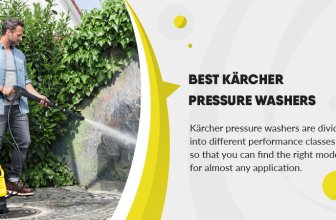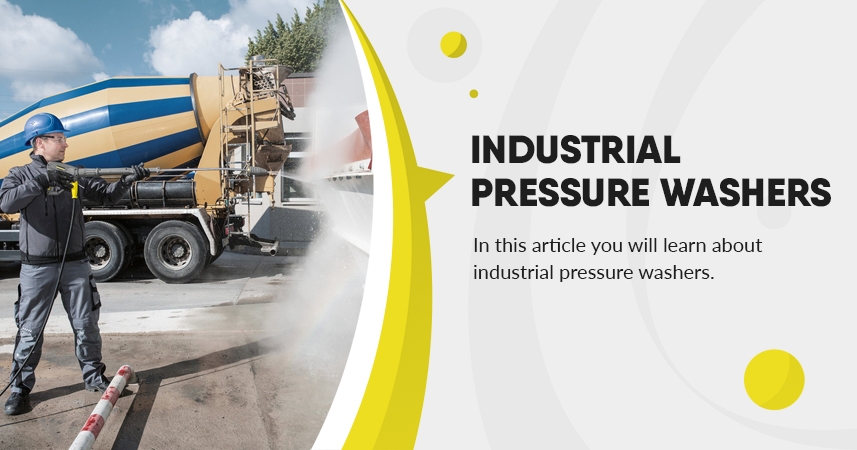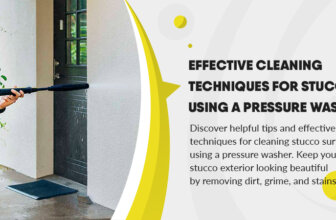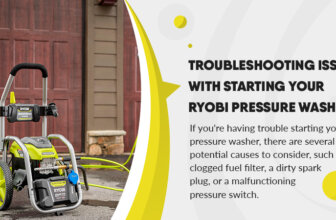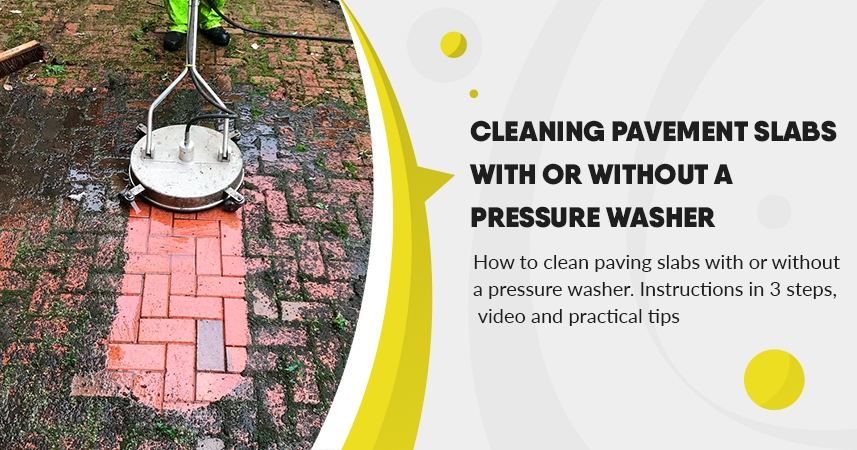
Pavement slabs can be cleaned with or without a pressure washer. Read here what to look out for in each case and how best to proceed.
What techniques are available?
Cleaning pavement slabs with a pressure washer
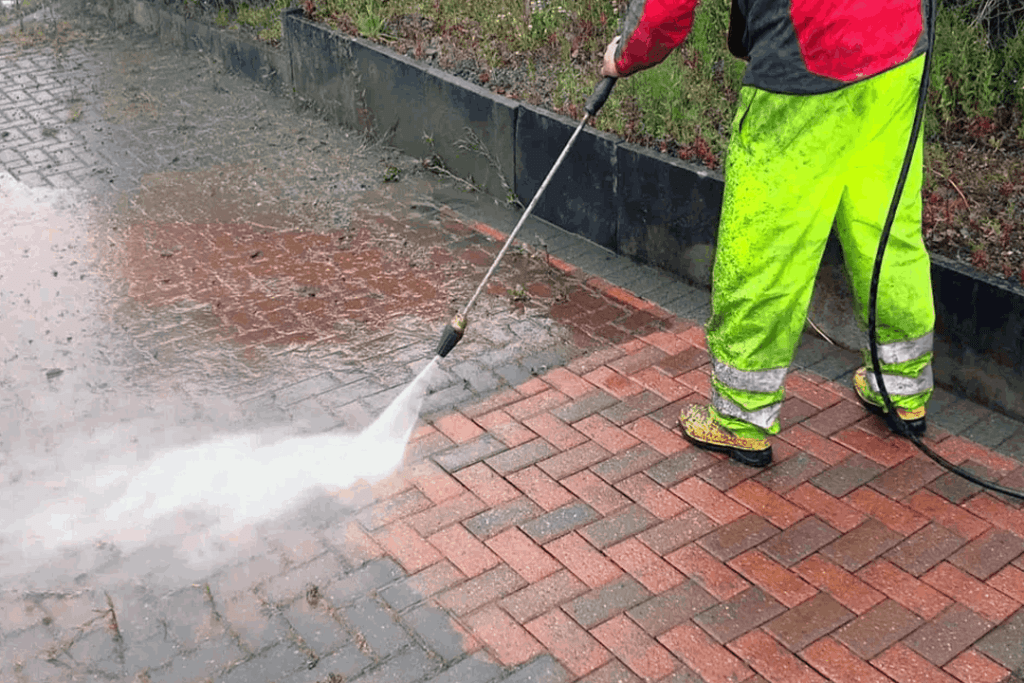
The quickest and easiest way to clean pavement slabs is with a pressure washer. However, this requires either owning or purchasing such a device, which is associated with costs. There are also special paving slab attachments for pressure washers that are gentle on the paving and ensure that it is cleaned over a wide area.
When cleaning, make sure you keep a distance of about 20 cm from the floor and use the correct water pressure and temperature settings. Also make sure that you work with your back to the house wall – otherwise you run the risk of causing splash marks. Special cleaning agents can be used for high-pressure cleaners, but it is important to check whether they are suitable for the respective floor covering.
Video:
Cleaning paving slabs without a pressure washer
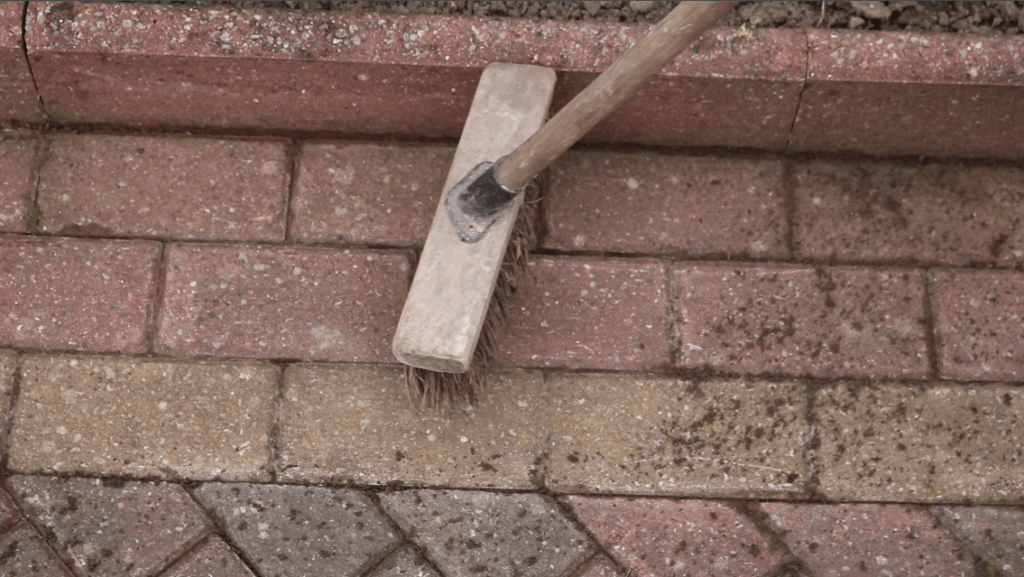
If you don’t have or don’t want to rent a high-pressure cleaner, you can alternatively decide to use muscle power – and simply clean the pavement slabs manually. This approach is necessary for natural stone slabs, for example, as the porous surface structure can quickly be damaged by a high-pressure cleaner. In addition, the costs of cleaning are significantly minimised.
Use a scrubbing brush, a root brush and warm water to scrub the slabs by hand. Also, use a suitable cleaning agent or home remedy that matches the slab material. For natural stones, however, make sure that no acidic agents are used.
Also of interest: Cleaning the carpet with a pressure washer
Product recommendations
Preparation
Preparation consists primarily of pre-cleaning to remove coarse dirt and scraping out the joints. It is best to use a high-quality grout scraper, which should have a metal blade and a comfortable handle. For special stains (such as oil and grease), a patio cleaner is a good choice. When choosing a cleaner, make sure it is suitable for the material of your paving slabs and that it is efficient.
This joint scraper tool that can be used as an attachment for different handles. This allows the working height to be adjusted individually. The joint scraper is extra hardened and particularly stable. Not only slabs, but also stair joints and wall corners can be freed from growth with little effort.
This oil and stain remover comes in a package size of 1 L, which is more than enough for cleaning individual stains. It absorbs both mineral and synthetic oil by binding it. This is gentle on the surface of the material. The patio cleaner can be used on both absorbent and non-absorbent surfaces.
Also of interest: Cleaning the terrace gently without a pressure washer
Cleaning with the pressure washer
Pressure washers are not only offered by different manufacturers, but also in different price and performance classes. Before buying, find out what the maximum water flow rate of the device is and where the water pressure is. This should be at least 100 bar and adjustable. Additional purchase criteria are the achievable water temperature, the wattage and the weight.
At 4 kg, this high-pressure cleaner is particularly light without sacrificing performance. The maximum flow rate is specified by the manufacturer as 360 l/min. It also has a working pressure of 110 bar. The high-pressure hose is 5 m long and can be connected and disconnected in a time-saving manner with the help of a quick-connect system.
This attachment can be used to prevent damage to the paving slabs during cleaning and to ensure optimum distribution of the water jet. The nozzle drive allows it to hover above the material surface, which makes adjusting the nozzle distance particularly easy. The attachment can be operated with a maximum flow rate of 600 l/min and a maximum inlet temperature of 60°C.
Sealing
The walkway slab sealer helps to make it less likely that dirt will stick and protects the pavement from the weather. Therefore, the product must match the material of the slabs. When buying, pay additional attention to the packaging quantity and the yield. Some stone finishes offer a finish that can affect the colour or texture of the paving slabs.
This colour-deepening stone finish can be applied to all absorbent natural and artificial stone slabs. There, it develops a water-, oil- and dirt-repellent effect. In addition, the colour and structure of the slabs are enhanced, which can emphasise their appearance. The stone finish is supplied in a canister with a capacity of 5 l, which is sufficient for 2 to 25 m2 of surface.
This joint material is a synthetic sand made from polymer. It can be used from a joint width of 1 mm and offers a rather dark basalt-anthracite colour. The sand makes the joints permanently impermeable to water and frost. It also effectively stops new weed growth.
Also of interest: Cleaning and maintaining a wooden terrace
Instructions: Cleaning pavement slabs in 3 steps with the pressure washer
Total Time: 2 minutes
1. Preparatory work
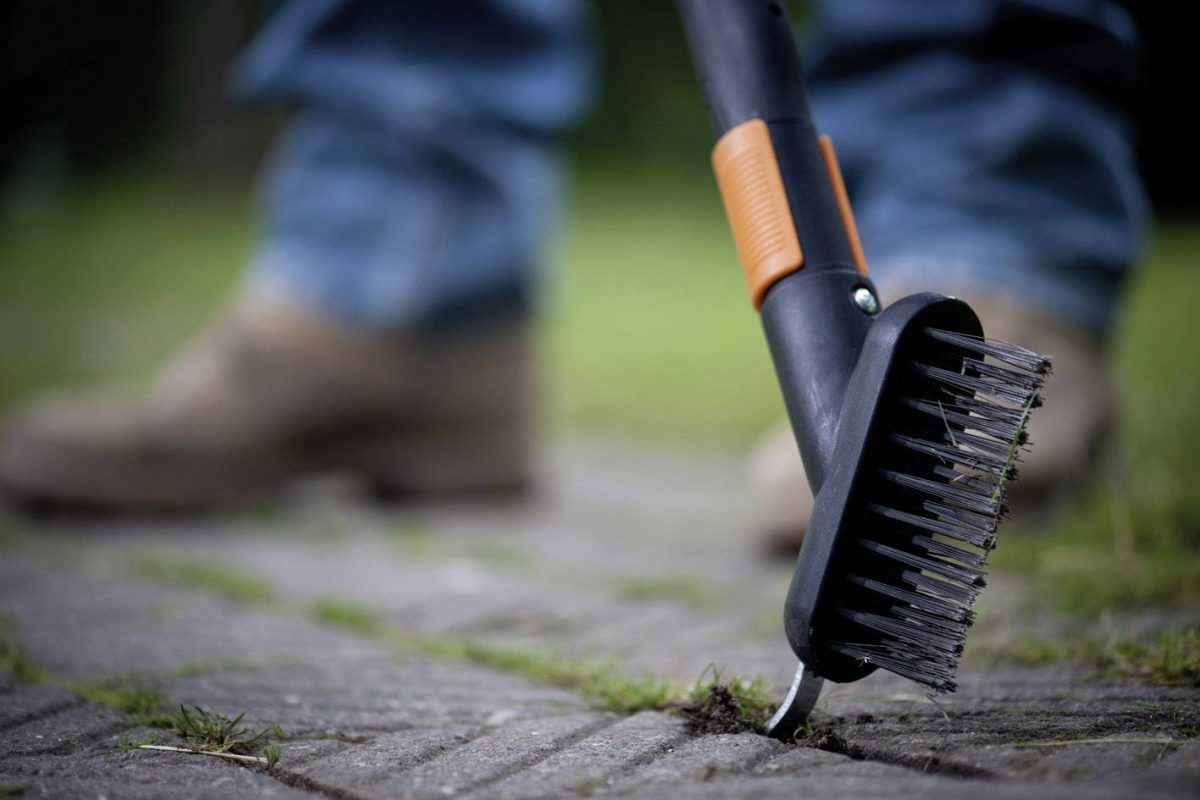
In order for the high-pressure cleaner to be fully effective, preparatory work should be carried out in a first step. This involves removing the coarse dirt and applying special agents to soak in. Also take care of the joints – if you were to scrape them out afterwards, you would have to clean some areas twice.
Clean the grout. Use a joint scraper with a metal blade to scrape out the joints of the pavement slabs. This can remove not only soil debris but also weeds. In the case of overgrowth, make sure to get the roots as well. Otherwise the offending plants will simply grow back.
Remove coarse dirt. A broom can then be used to remove coarse dirt. If you find a real crust of dirt on the surface of the stone or concrete slabs, you should also use scouring sand. This sharp-edged sand breaks up the dirt so that it can simply be pushed away with the broom. If necessary, work on individual areas with a root brush.
Use patio cleaner. For stubborn dirt such as grease, oil and everyday stains, you can also use a special patio cleaner. Apply it to the affected areas and let the product soak in according to the manufacturer’s instructions. It is important that the patio cleaner is suitable for the material of the paving slabs.
2. Clean with the pressure washer
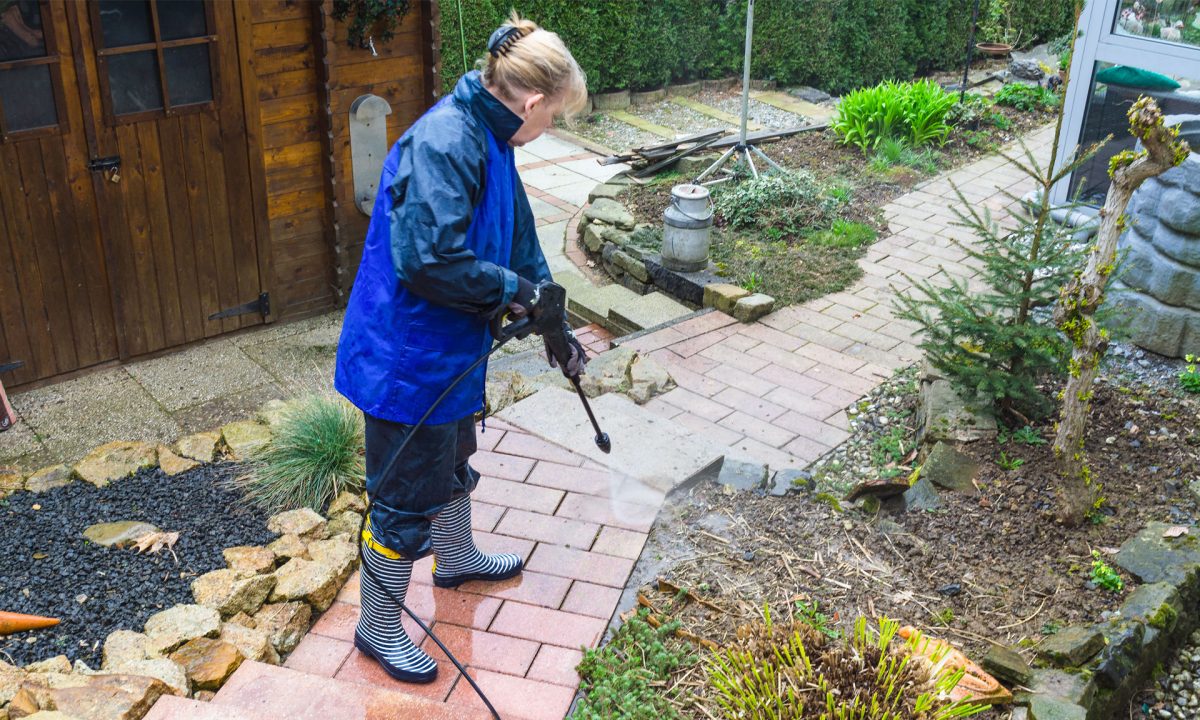
Then the high-pressure cleaner is used. Before you start, check the manufacturer’s instructions to find the right settings and ensure optimum cleaning. If you are using a chemical cleaning agent, you should also pay attention to the water jet – only use it on areas from which the water cannot run off into the garden.
Prepare stone row by stone row. Work your way forward with the high-pressure cleaner, stone row by stone row, paying attention to the distance to the ground. This should be about 20 cm to avoid damaging the surface. This procedure may be more time-consuming, but it ensures an even result. If necessary, adjust the water pressure if the paving slabs do not become clean.
Decide on an attachment. When using a pressure washer, it is always a good idea to buy an attachment for specific materials (such as concrete and patio slabs). While this increases the initial cost, it is gentle on the surface and reduces swirls of stone chips from the joints. It is also easier to adjust the water jet.
3. Seal the paving slabs
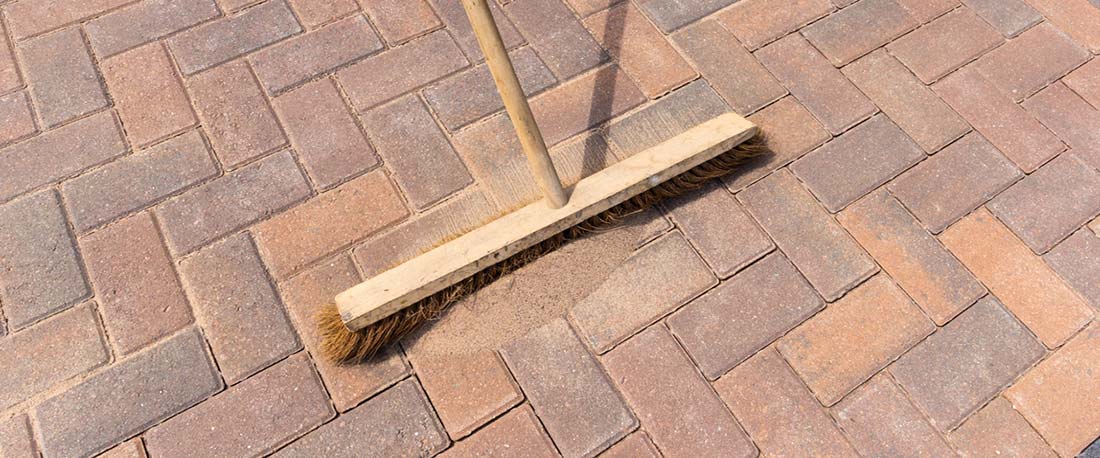
After the walkway slabs have been thoroughly cleaned, you should provide a suitable sealant. This can be done with stone finishes that seal the material of the slabs and protect them from new dirt. In addition, a protective layer is created against weathering and frost. Depending on the type of finish, it is even possible to change the colour and/or structure of the paving slabs.
Apply the stone finish. Apply the stone finish according to the manufacturer’s instructions to optimally impregnate the walkway slabs. It is best to use an old broom to spread the product evenly.
Allow to dry. Allow the sealant to dry completely. The drying time depends on the manufacturer and is usually between 12 and 24 hours. Only seal the paving slabs when there is no rain or snow – otherwise the product could wash out.
About the choice of grouting material. Finally, grout the paving slabs. Various grouting materials can be considered for this, including grit, sand and grout. Grit is a good moisture-dissipating material, but is only suitable for wide joints. Sand, on the other hand, absorbs stress and washes away quickly in the rain. Grout prevents weed growth, but is not always environmentally friendly.
Tools:
- Pressure washer
- Attachment for pressure washer
- Joint scraper
- Root brush
- Broom
Materials: Cleaning agent or home remedy, Stone sealant, Grout, Lukewarm water, Possibly patio cleaner, Possibly scouring sand
Possible problems & solutions
Problems that can occur during preparation. If walkway slabs are not cleaned regularly, the dirt can sometimes be difficult to remove. For example, lichen and moss form and cause discolouration. In this case, use a special cleaner to make the cleaning process easier. The same applies to oil and grease stains that can quickly form on a barbecue.
Problems that can occur during cleaning. When cleaning with a pressure washer, planning is essential – don’t just go row by row, but also align yourself in the best possible way. For example, you should work with your back to the wall of the house to effectively protect it from soiling by splashing water. Also, never aim the water jet directly at flower beds and lawns.
Problems that influence the choice of cleaning agent. Cleaning agents for patio slabs, concrete blocks and co. can be roughly divided into two categories: Chemical cleaners and herbal cleaners or home remedies. The former are more effective, but also harm the environment. Weigh the costs and benefits carefully and follow the instructions for use.
FAQ
How are stubborn stains such as oil removed from pavement slabs?
Paint stains, oil and grease and other everyday stains often cannot be removed with a pressure washer. In such cases, use special patio cleaners. These contain solvents, so work with caution.
What is the best way to clean natural stone paving slabs?
Natural stone slabs have a natural porosity, which is why a pressure washer should not be used for cleaning. Instead, clean natural stone slabs with a pH-neutral special cleaner and a soft root brush or broom.
Can paving slabs also be cleaned without a pressure washer?
If you prefer to rely on pure muscle power, you can also get pavement slabs clean without a pressure washer. Use a scrubbing brush and a patio cleaner as well as lukewarm water. If the dirt is heavier, the cleaning agent may have to be allowed to soak in first.
How do you clean paving slabs properly?
First sweep the area and scrape out the joints before you reach for the high-pressure cleaner. Then work with the device row by row. The walkway should then be sealed with a stone finish and filled with grout.













